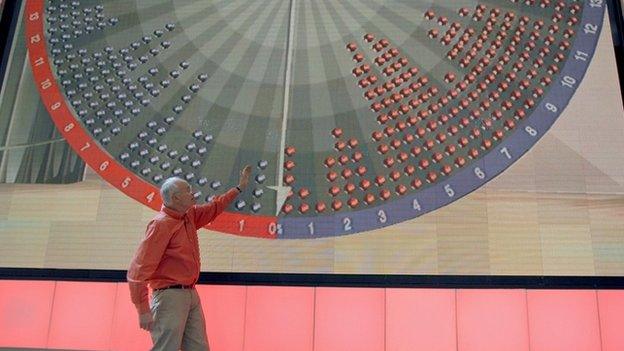Will pollsters redeem themselves in 2016?
- Published
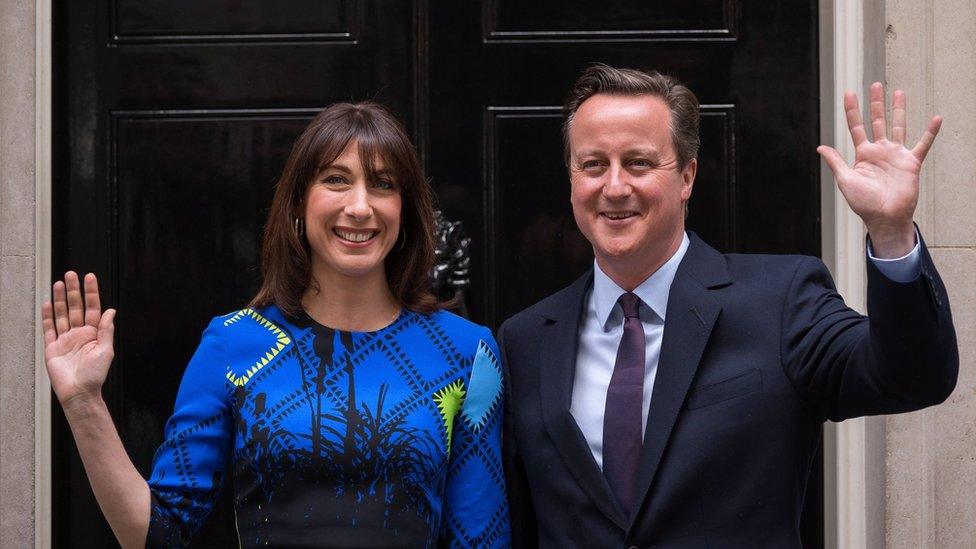
There is a theory that political polls in the UK suffer a car crash once every 20 years or so.
In 1970, the majority of polls suggested a Labour victory but the Conservatives won the election.
In 1992, 38 out of 50 campaign polls suggested narrow Labour leads yet the Conservatives won with a seven-point lead in the national vote.
And in 2015, out of 92 campaign polls, 17 registered a dead heat between the Conservatives and Labour and 42 recorded Labour leads when the election outcome was a seven-point Conservative lead.
In retrospect, 2015 began with powerful indicators of the shape of things to come. The Lib Dems languished well below the 24% share of the vote they received in the 2010 general election, UKIP maintained their place as the third party in GB-wide opinion polls, and the SNP totally dominated Scottish public opinion.
However, on the critical issue of support for Conservative versus Labour, the polls in January 2015 overwhelmingly suggested both were neck and neck and that a hung parliament was the most likely outcome in May.
Benefit of hindsight
Looking below the surface of the headline voting intention figures, Mori's question on satisfaction/dissatisfaction with party leaders in January 2015 found David Cameron at -17, Ed Miliband at -35 and Nick Clegg at -39.
And in the same month, a Lord Ashcroft poll recorded a 15-point lead for the Conservatives on which party was best to manage the economy.
Another Lord Ashcroft poll in February found David Cameron with a 31% lead over Ed Miliband as the one best at "doing the job of prime minister overall".
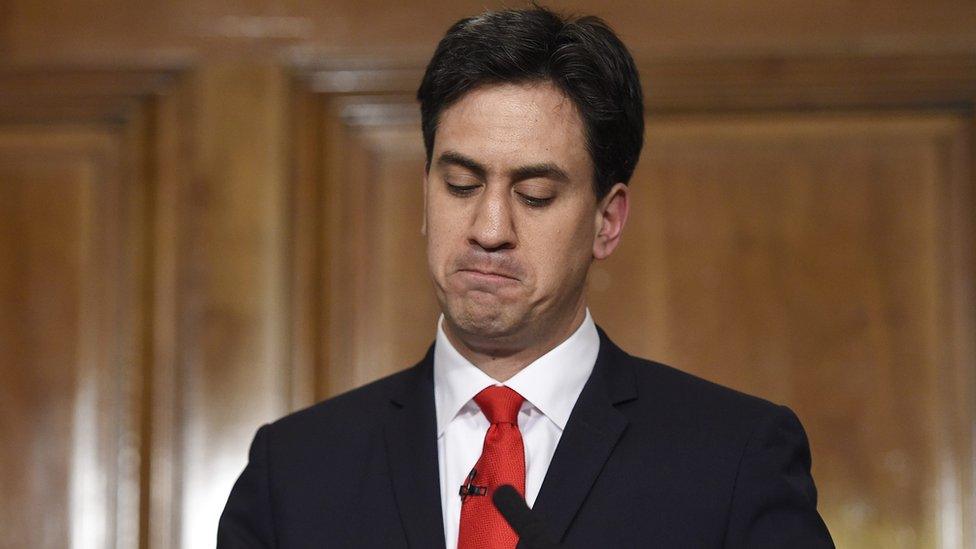
Despite many polls saying the May election was too close to call, Labour were roundly defeated and Mr Miliband resigned as leader
A number of people suggest that if we had all paid more attention to these findings then the eventual outcome would not have been such a surprise. Given the result it is difficult to disagree with such advice - but all of us would have benefited if more of it had been given before rather than after polling day.
In the event, the final 2015 election campaign polls from nine polling companies resulted in three giving Labour leads, three offering a dead heat and three suggesting Conservative leads - two registering one-point leads and the other a lead of three points - far below the eventual seven-point gap.
Weighting
Within 24 hours of the election result, the British Polling Council launched an independent inquiry into the performance of the polls. Chaired by Prof Patrick Sturgis and assisted by colleagues such as Prof Jane Green, their conclusions will be made public in mid-January.
They will be looking closely at a number of possible explanations: late swing, shy Tories, lazy Labour voters, differential turnout, sample weighting and whether we are any longer able to contact representative samples of the population.
But the impact of the 2015 polling experience has already been felt. During the months May-December following the 2010 general election, more than 190 voting intention polls were published; in the comparable period in 2015, the figure was 34.
Organisations that commission Westminster voting polls may not have lost their appetite completely but they seem to have been on a pretty fierce diet since May.
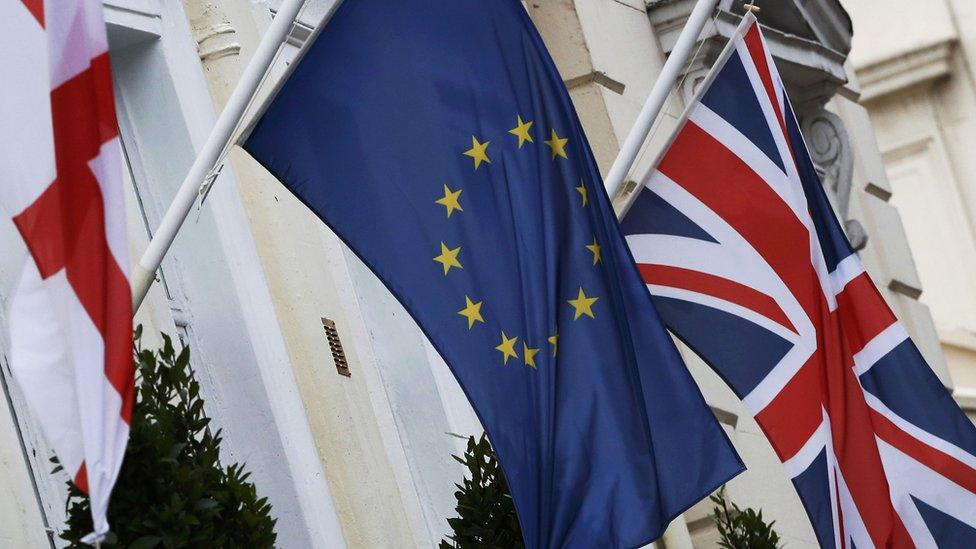
Will the pollsters redeem themselves in the run-up to the EU referendum?
However, those who thought the opinion polls would take a long time to emerge from the rubble of the May 2015 general election appear to have been rather premature.
Polling on the forthcoming European referendum is alive and kicking; and the seeming neck-and-neck support, external for "Remain" and "Leave" that emerged in December will do little to discourage the commissioning of further polls on the subject.
How the polls perform in predicting the result of that referendum, following the scale of their failure in the general election, will be of great significance.
Will the pollsters prove that 2015 was simply the latest in a 20-year cycle of significant mishits, or will their performance lead us to conclude that there are some really fundamental problems facing political polling in this country?
- Published17 May 2015
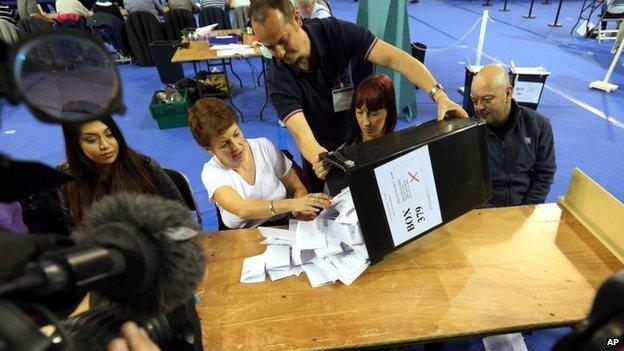
- Published8 May 2015
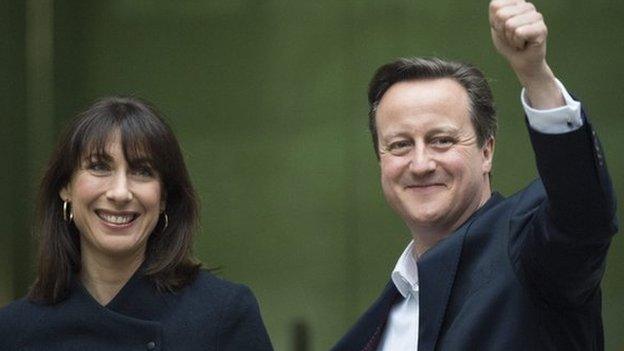
- Published8 May 2015
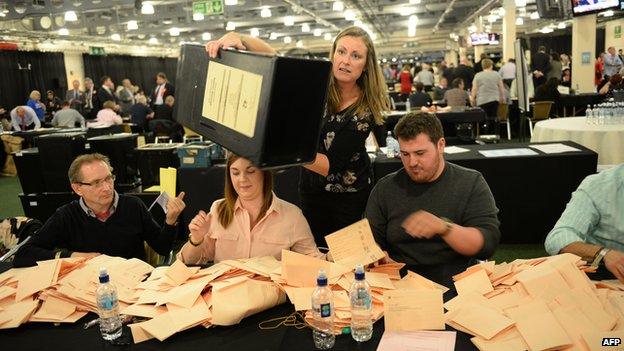
- Published8 May 2015
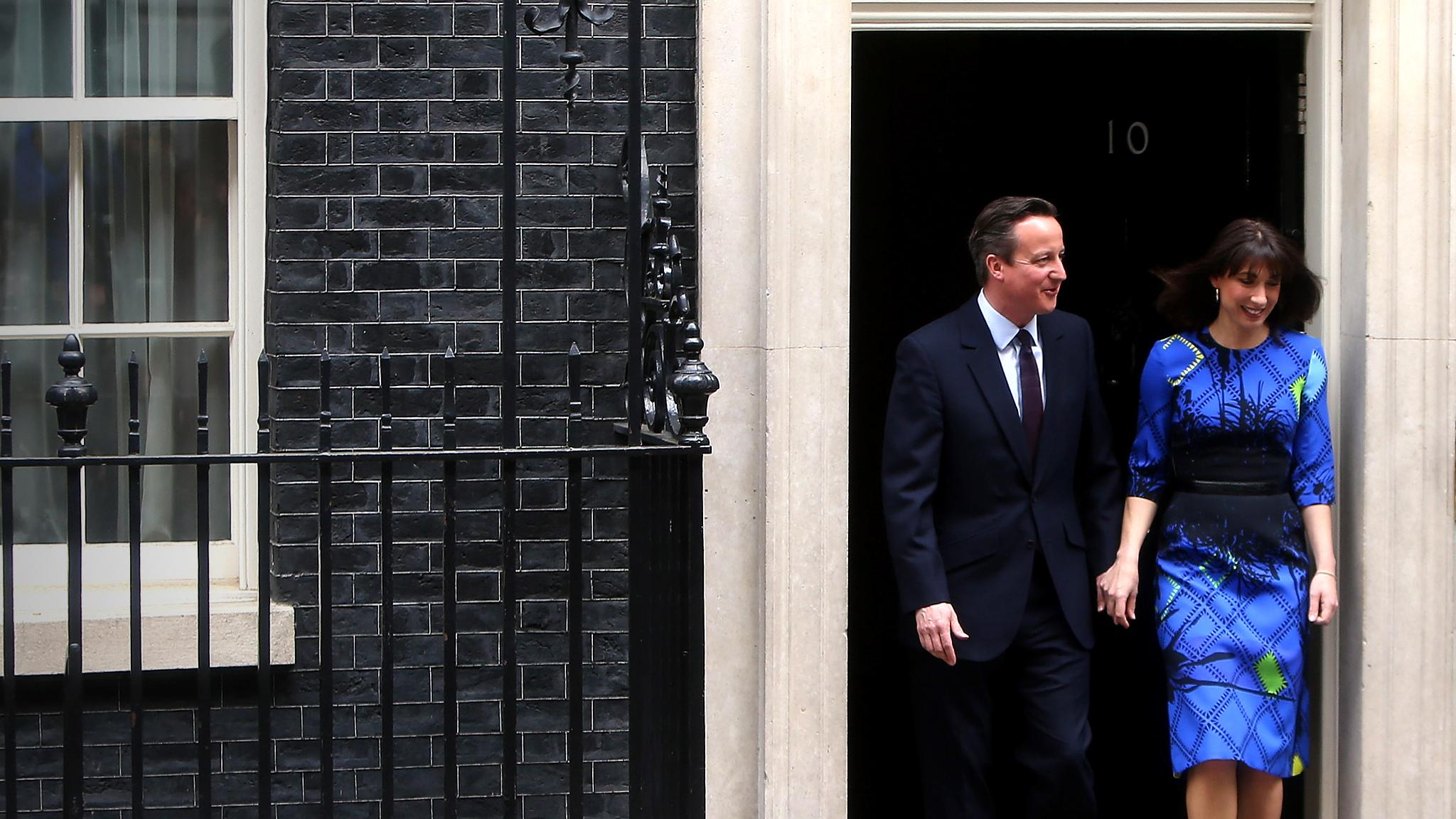
- Published28 March 2015
